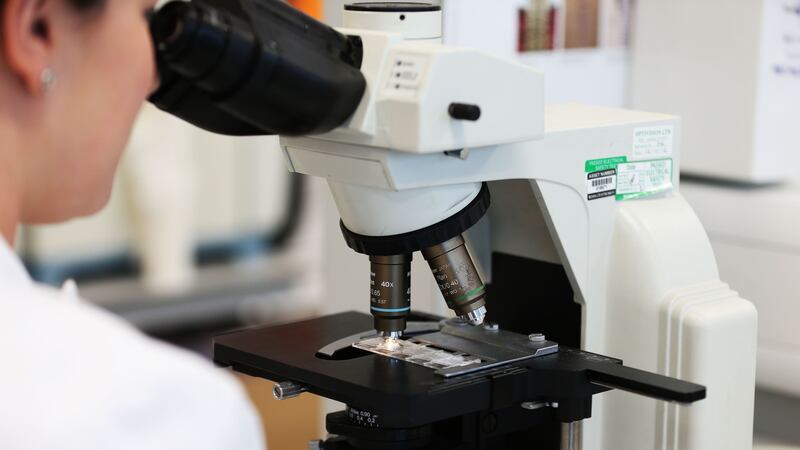Researchers are getting closer to developing a screening tool for ovarian cancer as they edge towards finding the cell origin of the disease, a new study suggests.
Ovarian cancer is the sixth most common in women, with around 7,500 new cases diagnosed in the UK each year.
Currently only 35% of patients in England will live five years beyond their diagnosis.
Fewer than one in three patients in England are diagnosed at Stage 1 where survival rates are as strong as 95%.
Zhiyuan Hu, first author of the paper, said: “The discovery of new types of cells sheds new light onto the complexity of ovarian cancers.
“This research should take us a step closer to identifying the cell of origin of ovarian cancer and to developing a new tool for screening.
“It also opens the door for similar research for other types of cancers.”
The new technique, set out in the Cancer Cell journal is called single cell RNA sequencing.
It examines all the RNA molecules – essential in biological roles – in a cell, whereas the traditional technique can only look at one group of cells at a time.
Researchers used the technique to examine individual normal cells from the inner layer of Fallopian tubes, which carry eggs from the ovaries to the uterus, and which is the origin of the vast majority of ovarian cancers.
This #WorldCancerDay, we want to highlight the symptoms of ovarian cancer. These are– Persistent stomach pain– Persistent bloating– Difficulty eating/feeling full more quickly– Needing to wee more frequently
Please share to help us to raise awareness: https://t.co/KLSVPK7Gcv
— Ovarian Cancer Action (@OvarianCancerUK) February 4, 2020
Through this they were able to identify new sub-types of normal Fallopian tube cells, which mirrored the molecular fingerprints in individual ovarian cancers.
Researchers discovered their technique can identify a particular group of ovarian cancer patients who have the poorest chance of surviving the disease and do not benefit from current treatments.
Focusing on new treatments for this particular group of patients will be an important way to improve overall survival rates, the researchers say.
Professor Ahmed Ashour Ahmed, director of the Ovarian Cancer Cell Laboratory at the MRC Weatherall Institute of Molecular Medicine at Oxford University, said: “Identifying the type of cancer cells is an important early step in choosing which drugs and treatments to use because different types of cells respond differently to treatment.
“The ‘Oxford Classic’, our new tumour classifier should give us much more accurate predictions for disease outcome in patients as well as helping us to develop targeted therapies for each type of cancer.”
Charity Ovarian Cancer Action funded the research.








